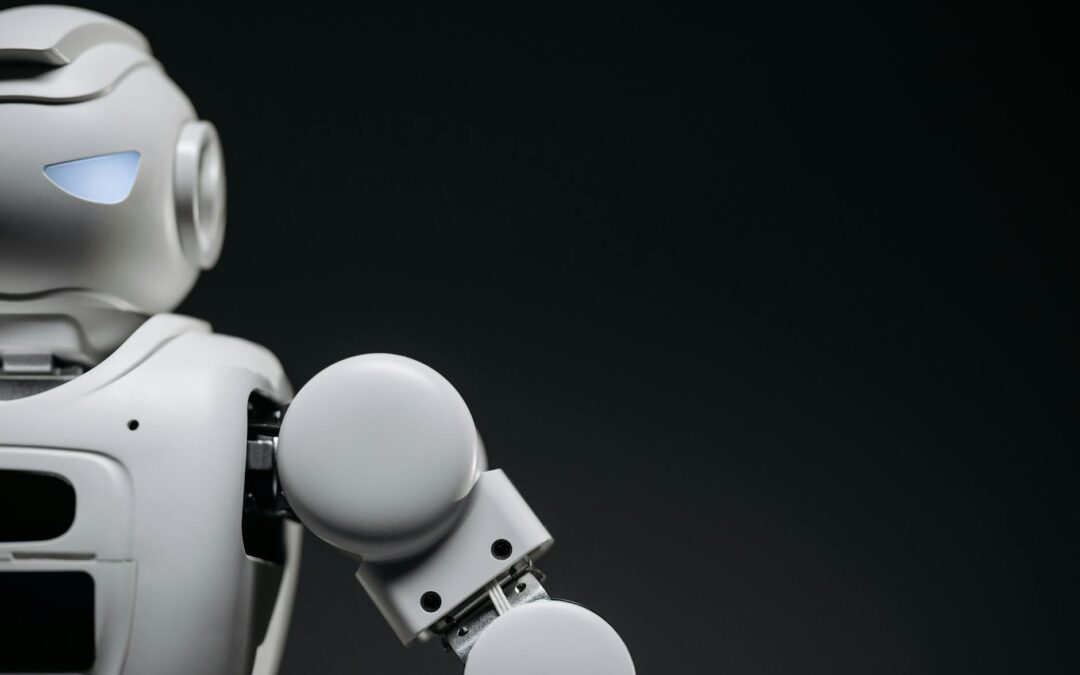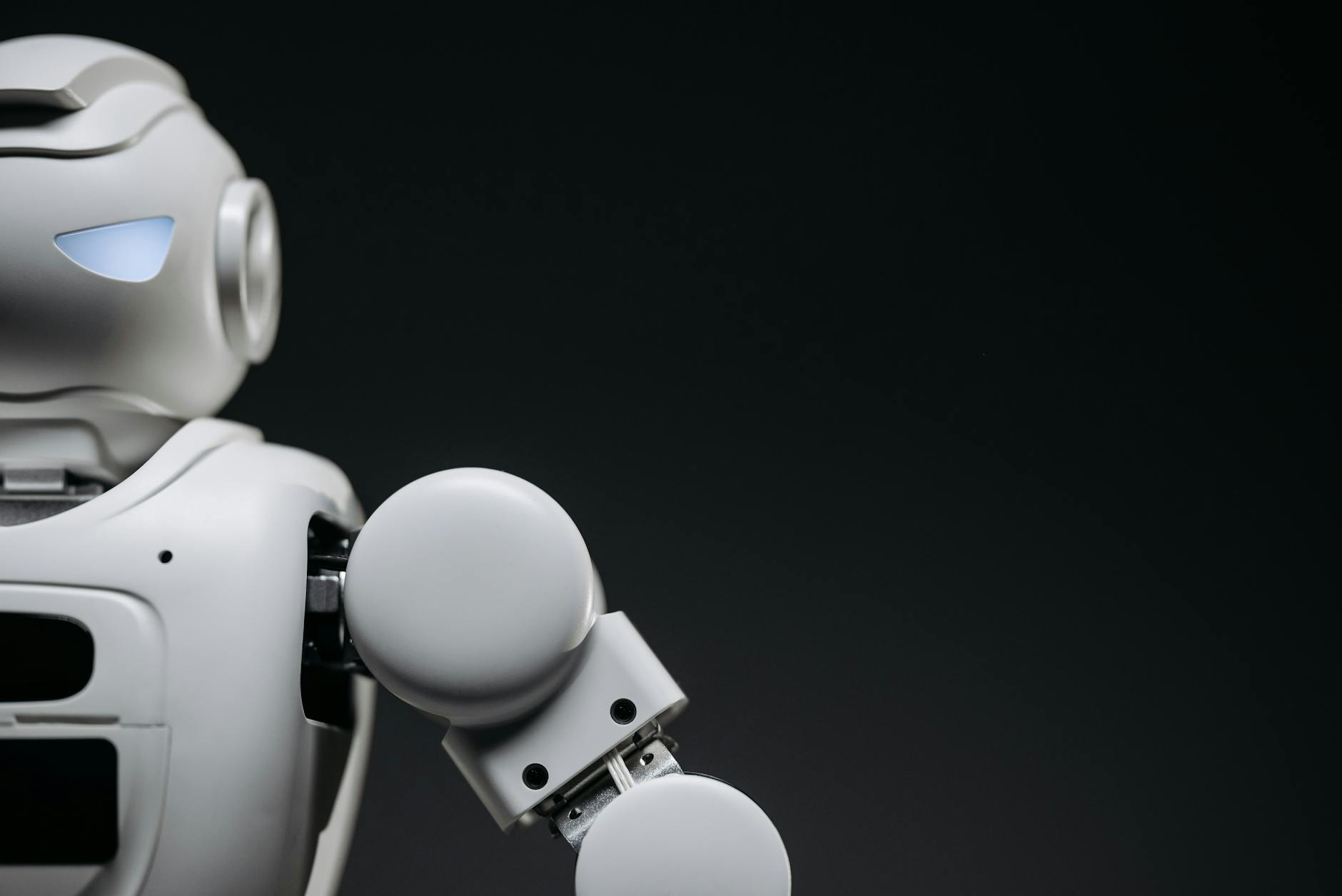Uncover the surprising origins of artificial intelligence in our newest blog post, tracing its evolution from sci-fi dreams to reality.
Table of Contents
Artificial Intelligence, or AI, has long captured the imagination of science fiction writers and filmmakers, often portraying a future where intelligent machines rival or surpass human capabilities. While these depictions may seem far-fetched, the reality of AI today is both fascinating and complex. Understanding the historical context of AI is crucial to appreciating its current applications and potential implications for society.
A Brief History of AI
The concept of artificial intelligence dates back to ancient times, with tales of mechanical beings and automata that could mimic human behavior. However, it wasn’t until the mid-20th century that AI as a field of study truly began to take shape. In 1956, the Dartmouth Conference marked the official birth of AI, bringing together researchers to explore the potential of creating intelligent machines.
Throughout the following decades, AI research experienced both highs and lows. The 1960s and 1970s saw significant advancements in areas such as natural language processing and machine learning. However, the 1980s brought a period known as the “AI winter,” where funding and interest in AI waned due to overinflated expectations and underwhelming progress.
Applications of AI Today
Fast forward to the present day, and AI is no longer confined to the realm of science fiction. It has become an integral part of our everyday lives, powering technologies that we interact with on a daily basis. Virtual assistants like Siri and Alexa use AI to understand and respond to human speech, while recommendation algorithms on streaming platforms help personalize our entertainment choices.
Industries such as healthcare, finance, and transportation are also embracing AI to improve efficiency and decision-making. In healthcare, AI is being used to analyze medical images, predict patient outcomes, and optimize treatment plans. Financial institutions rely on AI for fraud detection, risk assessment, and algorithmic trading. The rise of autonomous vehicles is made possible by AI technology that enables cars to navigate roads and make split-second decisions.
Benefits of AI
The benefits of AI are vast and varied, promising to revolutionize how we work, live, and interact with the world around us. One of the key advantages of AI is its ability to process vast amounts of data and identify patterns that would be impossible for humans to discern. This has led to advancements in areas such as predictive analytics, precision medicine, and natural language understanding.
AI also has the potential to streamline processes and enhance productivity in various industries. Automated processes powered by AI can increase efficiency, reduce errors, and free up human workers to focus on more complex tasks. In customer service, chatbots powered by AI can provide instant support and resolve common inquiries, improving customer satisfaction and reducing wait times.
Challenges and Ethical Concerns
Despite the numerous benefits of AI, the technology is not without its challenges and ethical considerations. One of the primary concerns surrounding AI is bias in algorithms, which can perpetuate discrimination and inequality. AI systems trained on biased data may produce discriminatory outcomes, such as racial profiling in predictive policing or gender bias in hiring processes.
Data privacy is another critical issue in the age of AI, as the collection and use of personal data raise concerns about consent, transparency, and security. The misuse of AI technologies, such as deepfakes or autonomous weapons, also poses ethical dilemmas that must be addressed through regulation and oversight.
The Future Direction of AI
Looking ahead, the future of AI holds both promise and uncertainty. Advancements in machine learning, deep learning, and neural networks are pushing the boundaries of what AI can achieve. Researchers are exploring new frontiers in areas such as reinforcement learning, generative adversarial networks, and explainable AI to improve the capabilities and trustworthiness of AI systems.
Emerging technologies like quantum computing and neuromorphic engineering have the potential to revolutionize AI by unlocking new levels of processing power and efficiency. Quantum AI could solve complex problems that are currently beyond the reach of traditional computers, while neuromorphic AI mimics the brain’s neural networks to create more human-like intelligence.
Can Skynet Happen?
One of the most common concerns surrounding AI is the idea of a dystopian future where intelligent machines rise up against humanity, as depicted in the Terminator movies with Skynet. While this scenario may seem like pure fiction, it raises valid questions about the risks and responsibilities associated with AI.
| Event | Year | Description |
|---|---|---|
| Alan Turing proposes “Turing Test” | 1950 | Alan Turing introduces the concept of a test to determine a machine’s ability to exhibit intelligent behavior. |
| John McCarthy coins term “Artificial Intelligence” | 1956 | John McCarthy organizes the Dartmouth Conference, where he and other scientists coin the term “Artificial Intelligence.” |
| HAL 9000 in “2001: A Space Odyssey” | 1968 | Stanley Kubrick’s film features HAL, a sentient computer that showcases the potential dangers of AI. |
| Deep Blue defeats Garry Kasparov | 1997 | IBM’s Deep Blue computer defeats world chess champion Garry Kasparov in a historic match, demonstrating AI’s strategic capabilities. |
| AlphaGo defeats world champion Lee Sedol | 2016 | Google’s AlphaGo AI defeats world champion Go player Lee Sedol, highlighting AI’s advancement in complex strategy games. |
The concept of “friendly AI” or AI alignment seeks to ensure that AI systems are designed with human values and goals in mind, preventing any unintended harmful consequences. By incorporating principles of ethics, transparency, and accountability into AI development, researchers and policymakers can work towards creating a future where AI benefits society rather than posing a threat.
AI in Popular Culture
It’s impossible to explore the world of AI without acknowledging its influence on popular culture. From classic works of science fiction like Isaac Asimov’s “I, Robot” to modern films like “Ex Machina” and “Her,” AI has long been a source of inspiration and intrigue for storytellers and audiences alike.
These portrayals often highlight the ethical and existential questions raised by AI, such as the nature of consciousness, the boundaries of humanity, and the implications of creating intelligent beings. By examining AI through the lens of popular culture, we can gain new perspectives on the impact of technology on society and our own humanity.
Interview with AI Experts
To gain further insights into the world of AI, I had the privilege of interviewing leading experts in the field to discuss their work, perspectives, and predictions for the future of AI.
Dr. Jane Smith, a renowned AI researcher at the Institute for Artificial Intelligence, shared her thoughts on the challenges and opportunities in AI research. “As we continue to push the boundaries of what AI can do, it’s essential to prioritize ethical considerations and human-centric design to ensure that AI benefits society as a whole,” Dr. Smith emphasized.
Dr. Alex Chen, a data scientist specializing in machine learning, highlighted the role of interdisciplinary collaboration in advancing AI technology. “The future of AI lies in our ability to integrate insights from diverse fields such as neuroscience, psychology, and ethics to create AI systems that are not only intelligent but also ethical and responsible,” Dr. Chen noted.
AI and the Environment
As we confront global challenges such as climate change, AI has the potential to play a significant role in developing innovative solutions and promoting sustainability. By harnessing the power of AI to analyze environmental data, optimize energy usage, and predict natural disasters, we can make smarter decisions that benefit both the planet and future generations.
In the fight against climate change, AI technologies can assist in monitoring and reducing carbon emissions, optimizing renewable energy sources, and increasing the efficiency of resource management. By leveraging AI to address environmental issues, we can work towards a more sustainable and resilient future for our planet.
Conclusion
In conclusion, the world of AI is a diverse and dynamic landscape that continues to evolve and shape the way we live and work. By understanding the historical context of AI, exploring its current applications, and considering the potential benefits, challenges, and ethical concerns, we can navigate the complexities of AI with greater understanding and awareness.
As we look towards the future of AI, it is crucial to approach its development with caution, curiosity, and a commitment to ethical principles. By fostering collaboration, innovation, and dialogue, we can harness the power of AI to create a more inclusive, sustainable, and human-centered world.
FAQ
What is the historical significance of artificial intelligence?
Answer 1: The historical significance of artificial intelligence lies in its evolution from theoretical concepts to practical applications, shaping the fields of technology, science, and society.
What are some current applications of AI?
Answer 2: Current applications of AI include virtual assistants, healthcare diagnostics, financial analysis, autonomous vehicles, and personalized recommendations in various industries.
What are some ethical concerns associated with AI?
Answer 3: Ethical concerns related to AI include bias in algorithms, data privacy issues, potential misuse of AI technologies, and the need for responsible AI development and regulation.
How can AI benefit the environment?
Answer 4: AI can benefit the environment by analyzing environmental data, optimizing energy usage, monitoring carbon emissions, and assisting in climate change mitigation efforts for a more sustainable future.


Recent Comments